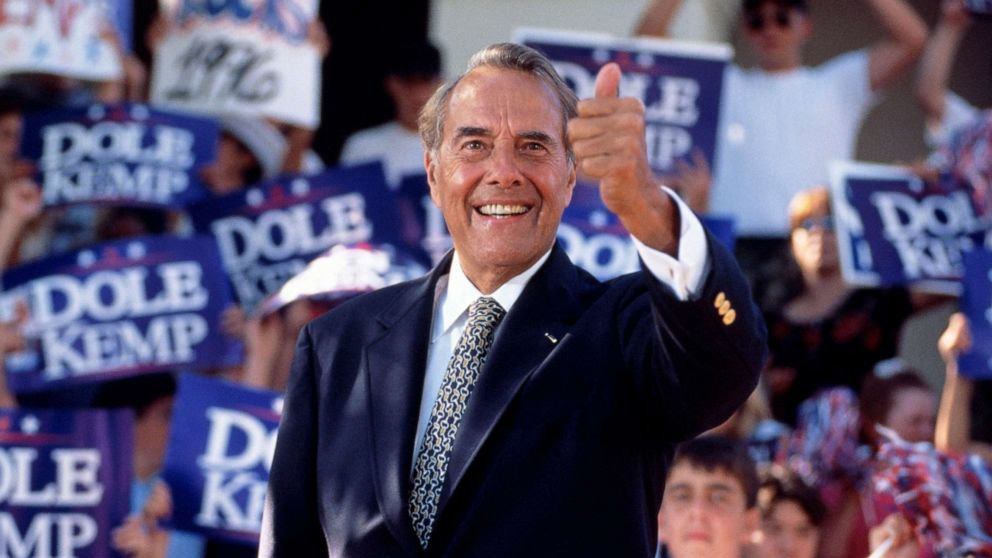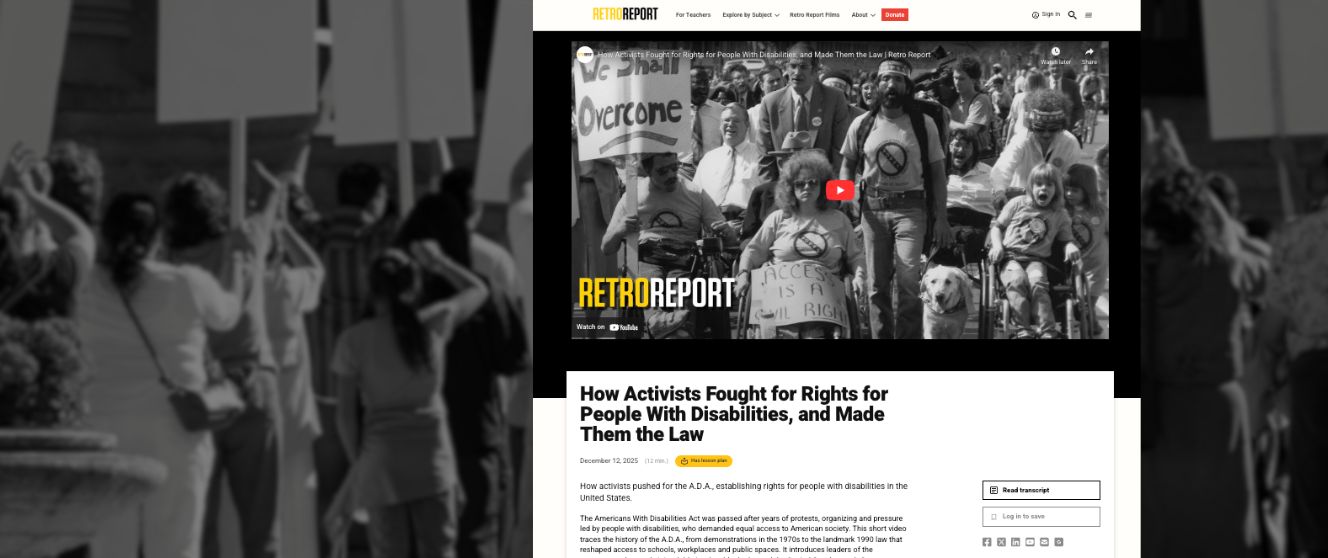

“Having a disability changes your whole life, not just your attitude.”
– Robert Dole, in an interview with Ability Magazine
On April 14, 1969 – nearly three and a half months after being sworn in, Robert Dole, a freshman Senator from Kansas – delivered his first speech on the Senate floor. It was the 24th anniversary of the day he was wounded in Italy during the final days of World War II, and not coincidentally, Dole spoke about the discrimination faced by disabled Americans.
Senator Dole noted that disabled people have “always known exclusion; maybe not exclusion from the front of the bus, but perhaps from even climbing aboard it; maybe not exclusion from pursuing advanced education, but perhaps from experiencing any formal education; maybe not exclusion from day-to-day life itself, but perhaps from an adequate opportunity to develop and contribute to his or her fullest capacity.”
For Senator Bob Dole, the slogan “the personal is political” truly was. Bob Dole was just 21 years old when he received the injuries that would inform his life and political career. Unable to take notes because of the injuries he received in WWII, Dole graduated law school by memorizing lectures from tape recordings he made long before running for elected office, but the lessons learned jerry-rigging access and finagling DIY accommodations seemed to stick.
Dole was the Republican Leader of the Senate during the final 11 years of his tenure, including three nonconsecutive years as Senate Majority Leader. Prior to his 27 years in the Senate, he served in the United States House of Representatives from 1961 to 1969. Dole also was the Vice-Presidential nominee for the GOP, running with Gerald Ford in the 1976 election, and was the Republican nominee for President of the United States in 1996.
During his decades in public service, Senator Dole championed the Individuals with Disabilities Education Act of 1975, the landmark legislation which today guarantees a free and public education for students with disabilities. He also worked to pass the Developmental Disabilities Assistance and Bill of Rights Act of 1975, and worked across the aisle with Democrats and fellow Republicans to pass the 1986 Protection and Advocacy for the Mentally Ill Act, the 1986 Air Carriers Access Act, the 1986 Education of the Deaf Act, the 1988 Technology Assistance Act, and the 1990 Television Decoder Circuitry Act.
In 1983, the Dole Foundation for Employment of Persons with Disabilities was established with a mission befitting the organization’s name, and he considered passage of the landmark civil rights legislation, the Americans with Disabilities Act of 1990, to be among his crowning achievements.
“In the Senate, though we often disagreed, he never hesitated to work with me or other Democrats when it mattered most,” said President Joe Biden in a statement following Dole’s passing. “He and Ted Kennedy came together to turn Bob’s lifelong cause into the Americans with Disabilities Act — granting tens of millions of Americans lives of greater dignity.
Even after retiring from the Senate, just six days after being released from Walter Reed Army Medical Hospital in 2012, Dole appeared on the Senate floor to make a largely unprecedented last-minute appeal for Congress to ratify the United Nations Convention on the Rights of Persons with Disabilities. According to Foreign Policy’s Josh Rogin, the appearance was intended to be “a dramatic effort to force any Republicans who intended to vote against the treaty to walk past him to do so.” The effort failed, but years later symbolism embedded in the attempt continues to serve as powerful example of Senator Dole’s unwavering support of disability rights, first nationally and then later, across the globe.
Bob Dole lived through the poverty of the Great Depression, survived World War II, and never forgot where he came from while always working toward a better bipartisan future. He used the bully pulpit of public office to give other disabled people, both at home and abroad, the same rights, opportunities, and respect that many others take for granted.
DREDF sends our collective condolences to his friends and family, and we share our grief with colleagues in honoring the life and legacy of a dedicated champion for disability rights.

